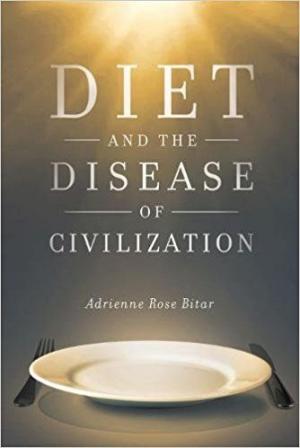
Diet books are some of the bestselling books of the twentieth century. By some accounts, the Atkins series has sold more than twenty million copies. The South Beach Diet sold about ten million and Eat Right 4 Your Type adds in another seven million. Combined, just these three diet books could fill every shelf in the Library of Congress and still have a copy left over to circulate at every American public library.
Obesity rates and the long, complicated history of food and diet explain a lot about why forty-five million Americans diet every year and weight loss is an estimated $60-billion industry. As oft-cited statistics indicate, obesity rates have more than doubled in the last generation, growing from just under 15 percent in the 1960s to 35 percent today. Morbid obesity rates quadrupled between 1986 and 2000. Today, two out of every three Americans are overweight or obese. In 1997, the surgeon general declared a “war on obesity,” calling it an epidemic which endangered the very future of the nation. By 2002, another surgeon general called obesity “the ‘terror within’, a threat that is every bit as real to America as weapons of mass destruction.”
Diet books do more than offer insight into statistics like these. With the onset of the obesity epidemic about thirty years ago, the books became myths and manifestos, with broader concerns and higher stakes. They now look more like manuals to make the world a better place. Like other powerful narratives, diet books offer insight into how America sees itself, blames itself, and what kind of civilization it promises to make for itself.
The scholar R.W.B. Lewis once explained that the history of a culture is a dialogue, a sometimes bruising contact of opposites that uses specifics to stand in for larger, more powerful ideas. Diets, like all good cultural touchstones, stand in for the bigger debate about history, salvation, nature, money, power, sin, hope, innocence, experience, time, and all the other ideas that make the world worth thinking about. And Lewis writes that a scholar’s work is not to settle the terms of the discussion—to judge right and wrong, declare a victor—but to divine the “images and ‘story’ that animate the ideas and are their imaginative and usually more compelling equivalent.” Diet books enclose these big ideas to reveal, in Lewis’s words, “a certain habitual story” that gets repeated endlessly, from one decade to the next, from one generation to the next, a story about a fallen civilization that might just still do right.
Diets retell the narrative backbone for our national consciousness: a tragedy of the jeremiad lamenting a lost Eden, simmering with potential, and always grasping for a better world. It is unsurprising that diets narrate what is, arguably, the most familiar literary narrative in the Western world. More important for a deeper understanding, however, is how these diets use the banal, often boring material of breakfast-lunch-dinner and the quest for self-improvement to channel larger concerns about the success or failure of America.
Excerpted from Diet and the Disease of Civilization by Adrienne Rose Bitar with permission by Rutgers University Press. Copyright © 2018 by Adrienne Rose Bitar.
Tidak ada komentar:
Posting Komentar